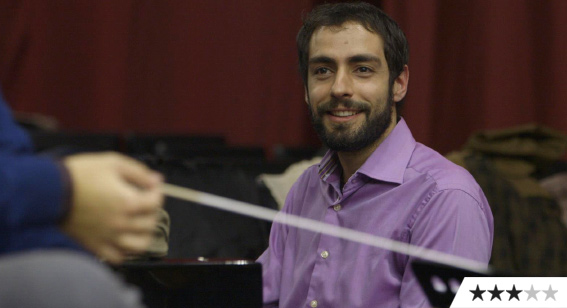Review: ‘Crossing Rachmaninoff’ Is (In Some Ways) A Real-Life ‘Whiplash’
Merging slice-of-life biopic with concert film, Crossing Rachmaninoff is – in some ways – a real-life version of Whiplash with a pianist. The film adamantly emphasises the unavoidable perfectionism required to play on stage while highlighting the struggles its subject Flavio Villani faced because of his musical desires (and sexual orientation). But don’t go in […]

Merging slice-of-life biopic with concert film, Crossing Rachmaninoff is – in some ways – a real-life version of Whiplash with a pianist. The film adamantly emphasises the unavoidable perfectionism required to play on stage while highlighting the struggles its subject Flavio Villani faced because of his musical desires (and sexual orientation). But don’t go in expecting blood-on-the-keys intensity or an angry, bald tutor with a face-slapping complex.
The film follows Villani mere months before a life-changing performance of Rachmaninoff’s Piano Concerto No. 2 (which, for musically illiterate people like me, looks like a K2 mountain climb for the fingers). Director Rebecca Tansley superbly echoes the beauty of the piano performances, using sublimely edited strings of sweeping shots to visually match the seductiveness of the music.
In comparison, the telling of Flavio’s journey feels rather rote, filled with talking heads detailing pianist philosophy and Flavio’s backstory. This isn’t a flaw, per se, but the depiction feels cinematically limited. While it’s easy to get a grasp of Flavio’s ideas and worries through a speech or an anecdote, it’s difficult to really feel the isolation of the pianist “prison” when we’re not really shown it or the joy of having “a dialogue” with other musicians when it’s only Flavio saying so.
But this only holds a very good documentary back from being great, and sometimes the storytelling simplicity can lead to refreshingly grounded moments (as was the case with the resolution between Flavio and his father, who was not big on his son being gay). And simple storytelling is still effective storytelling, which is what Crossing Rachmaninoff needed to support the final 15 minutes that’s dedicated to the Concerto’s entire Third Movement. And just like Whiplash, that finale is rousing.




















